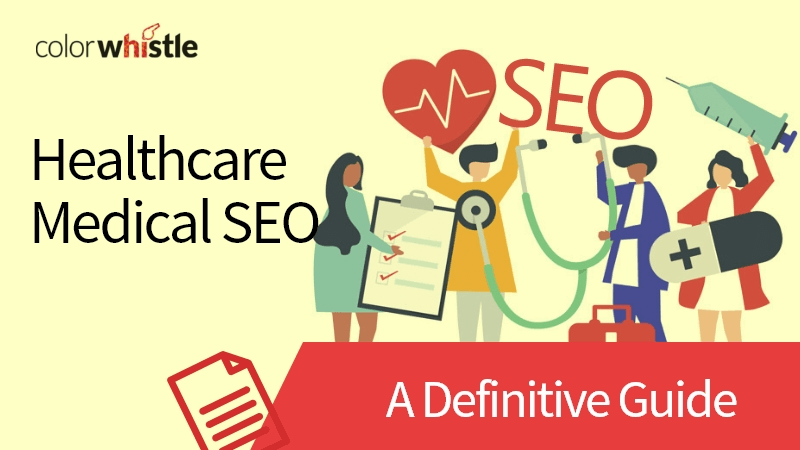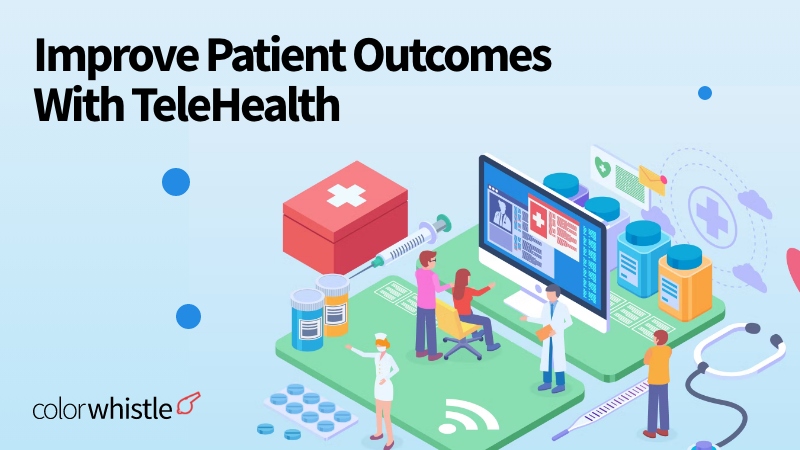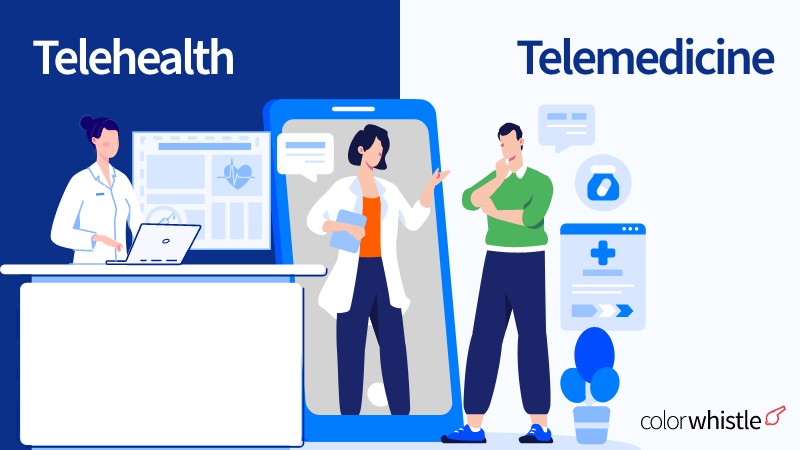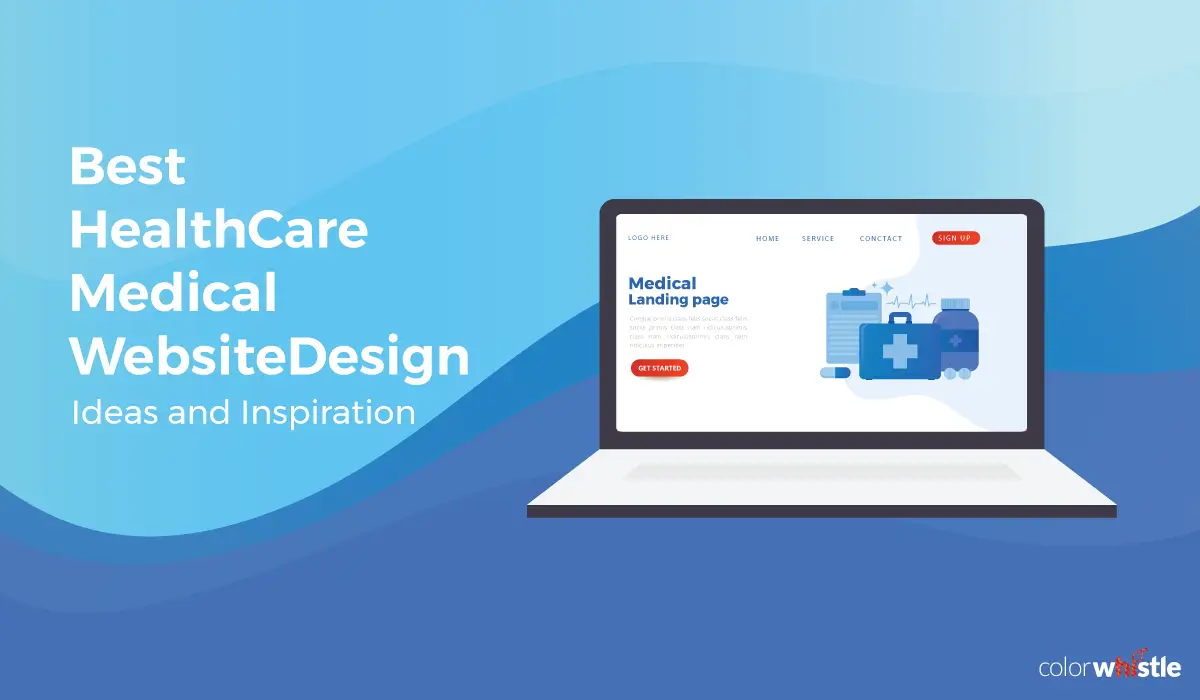Are you thinking about why your medical website needs SEO? Is investment in medical SEO worth it?
To all these questions, the answer is YES.
With the world going digital, patients opt-in for a healthcare website to look for doctor’s information, hospital services, and others.
Whether you are running a small clinic, or a medical institution, if you fail to showcase your website on search results, then you are going to lose in the competition.
To avoid that, you have to embrace medical SEO. It breathes in a new life to your online healthcare center. Optimizing your healthcare website
Here, we will show you a clear-cut picture of the importance of SEO for healthcare websites. To gain the overall insights about healthcare SEO, advantages, and techniques to implement, keep reading the blog till the end.
Let’s build a healthy SEO website.
What is Healthcare SEO?
Search engine optimization commonly referred to as SEO is a branch of digital marketing that when done right works wonders for your healthcare business. Healthcare SEO is the process of boosting your medical center’s website or page rankings on search results.
Engaging your site users, employing the algorithms of search engines, and avoiding black-hat SEO techniques would narrow down the possibilities of your website lacking visibility on the search engine results page (SERP).
Through persistent & strategic efforts, you can acquire good SEO rankings and be visible before your target clients.
Why Should You Invest in Healthcare/Medical SEO?
Today, everybody is conscious about maintaining their physical and mental health. To recover people from various health crises, the medical industry is experiencing reasonable growth across the world.
According to a report from Fortune Business Insights, the market size of the global medical services was valued at $425.5 billion in 2018 and is expected to reach $612.7 billion by 2025.
If you don’t want to be caught up in the vast competitive healthcare market, then effective visibility on search results pays it off. The below statistics is proof that medical SEO can drive potential patients to your sales pipeline.
- Google’s total daily health-related searches amount to 70,000 each minute
- Pew Research study shows that 72% of U.S. Internet users have gone online specifically for health-related information and 7% of them says their research started at Google, Bing, and other general search engines
- Online search drives 3x more visitors to hospital sites compared to non-search
- 73% of patients turn to search engines to find a health practitioner and 89% use search engines to get answers to healthcare queries
- 75% of patients use search engines prior to scheduling a visit
Advantages of Implementing Healthcare SEO
As you practice optimizing your website for SEO rankings, you can gradually experience all these benefits in the long run.
- Improvement in brand visibility
- Increase in website traffic
- Rise in ROI
- Reduction in patient acquisition cost
- Growth in website rankings for relevant search queries
- Paves way for connecting with highly interested prospects
We live in a technology-driven era where ¾ of your patient-based look for healthcare information on the web. By applying the right SEO techniques, you can stand in the frontline of search results and raise your voice among the audience.
How to Optimize Healthcare/Medical SEO?
According to SearchEngineJournal, SEO leads have a 14.6% close rate in converting patients, while outbound leads have a 1.7% close rate. We share some of the best-working on-page and off-page SEO techniques that increase your patient acquisition rate and convert the leads into your followers.
- Optimize title, heading, meta tags
- Research for medical industry based keywords
- Optimize the images
- Secure the website with HTTPs
- Optimize the URLs
- Apply responsive feature
- Optimize website loading time
- Fix broken links
- Add Schema markup
- Build XML and HTML sitemaps
- Utilize SEO tool
- Include a PR section
- Post blog articles
- Include citations
- Add inbound and outbound links
- Create user-friendly and easily readable content
- Apply smooth navigation
- Optimize your website banners
- Optimize CTAs
- Create an appealing GMB profile
Web designing, hosting, content creation, testing, and other operations contribute much to engaging your site visitors. However, before engagement, you have to pull patients to your website among the millions of websites available in the search results.
This can be accomplished with a healthy SEO practice. Optimizing your site for search engine rankings gives a professional look to your medical website and paves way for creating awareness about your services in the online space.
Effective Healthcare /Medical SEO Techniques
1. Improve Your Website Loading Speed
The total time a webpage takes to fully load in the browser once after the user makes a request is referred to as website load time. It’s always the case that when your webpage load time increases, then your website bounce will also increase.
Your website should load within a fraction of seconds because when loading time goes from 1s to 10s, the probability of bounce rises up by 123%. The average webpage load time recommended by Google is less than 3 seconds.
Best Tools to Measure Page Speed
Effective Ways to Increase Your Page Speed
- Use a content delivery network (CDN)
- Choose a web-performance optimized web hosting provider
- Compress and optimize the image size
- Remove unnecessary plugins
- Reduce the redirects
- Minimize the number of JavaScript, CSS, & HTML files
- Enable browser and website caching
- Implement Gzip compression
- Optimize CMS to reduce database size
- Reduce of use of web fonts
- Detect 404 errors
- Utilize prefetching techniques
2. Optimize for Voice Search
With the advent of voice search, patients are now showing a lack of interest in typing. Voice search never disrupts any of the current activities of your patients, instead, this feature allows them to carry on with their work and browsing as well.
From the SEO perspective, it’s reported that 71% of respondents would rather use their voice assistant to search for something than physically typing their queries. Owing to the convenience feature, patients prefer voice search functionality particularly on hospital websites.
Strategies to optimize your site for voice search
- Research for voice-based keywords
- Build site structure and content strategy
- Optimize structured data
- Make your content relevant to Google Home & Alexa
- Build mobile-friendly content
There are certain factors you have to consider while optimizing your site for voice search.
- Featured snippets
- User intent
- Long-tail keywords & queries
- Page speed
- Structured data
- Local SEO
By keeping all these in mind, you will be able to acquire better positions on search engines for voice-based queries. You can also learn more about how to optimize your site for voice search.
3. Research for Hospital-related Keywords
While optimizing your content, you want to target the right keywords for your industry.
Your starting point should be the medical services you offer, as that’s what most searchers will be looking for.
Tools such as Google’s Keyword Planner help you identify the suitable keywords that can work wonders for your healthcare business.
As in all cases, avoid “stuffing” keywords into the content. When you do so, you will be easily caught by Google and there are chances for your website to be penalized. To avoid this, add specific, long-tail keywords into your content in a relevant, readable, and natural way.
Not only will this separate you from the WebMDs, but you’ll also begin to attract the patients you want those who live in your geographic area and are looking for the specialized expertise you offer.
4. Optimize the Title & Meta Tags
Page titles are the key to enhancing your page visibility. According to Databox, 36% of SEOs think the title tag is the most important SEO element. Also, a study conducted by HubSpot reveals that page titles containing 6-13 words generate the most traffic.
Here are a few standard norms that we suggest you follow for your page title
- Avoid duplicate content in the title tag
- Provide a unique title to every page
- Avoid stuffing keywords into your page titles
Meta descriptions always have a bond with titles since both help to predict the brief that is given inside. According to Google, the maximum character length of the meta description tag should be up to 275 characters long, and also it should be organic ad text.
Some basic tricks for writing the meta descriptions are
- Use researched and targeted keywords
- Communicate the benefits of the content to the readers
- Ensure that the meta tags are relevant to the content on the page
- Avoid using the same meta description across your whole site
An interesting statistic from Optinmonster says that 43% of people click on a given result, solely based on the meta description.
5. Optimize for Local SEO
In this tech-world, patients mostly rely on the internet to find nearby hospitality services which are easy to access. Optimizing your website for local SEO drives in more local patients. 97% of online users use search engines for finding local stores/services.
Statistics prove that once a patient searches for a local service, there’s a 3/4 chance they will visit the clinic in-person within the span of a day. Schema markup is one of the powerful local SEO techniques that showcase your brand on the local SERPs.
Generally, search engines aim to understand the queries prompted by the searchers and provide relevant results.
Schema is a structured data markup code that, when added to the HTML code of your webpage, will help search engines to better understand the exact context behind your website content.
Moreover, webpages with schema markup will easily be identified by search engines and are displayed in the form of rich snippets.
6. Create E-A-T Content
Normally, when you want to describe a person, you talk about their stature, weight, color, and other aspects. This is the same in the case of content marketing, if you want people to talk about your content & services then you must provide expertise, authoritative and trustworthy content.
In 2015, Google introduced the Quality Rater Guidelines where E-A-T (Expertise, Authoritativeness, Trustworthiness) became mandatory in content creation.
Points to remember to create E-A-T content
- Links from authoritative websites with supporting stats, data, and facts
- Updating your site according to the changing trends
- Providing your bio on the about page
The quality rater, however, is not going to rank your content depending on the keywords and links. The sites or pages without purpose, content that is not helping users, harming content, misinforming and deceiving content would be given the lowest rating, whereas E-A-T content will be leading in the SERP.
Connect With an Active Healthcare SEO Agency
We hope now you have stopped questioning why you should apply medical SEO for your healthcare website. Of course, you cannot experience the changes in your website rankings overnight.
As you are aware, the medical industry is vast and wide. Standing ahead in the competition is challenging. You will have to be aware of the ever-changing search engine algorithms and alter your SEO techniques, as well as keep track of your SEO performance.
Carrying out all these operations without the help of a professional would eat up your time and money. If you want to take a wise decision, then consider partnering with a skilled healthcare SEO agency.
ColorWhistle is a specialized medical SEO company in India with profound experience and knowledge in delivering out-of-the-box solutions to healthcare centers. Our healthcare SEO specialists aim to turn your website into an SEO-friendly site without any black-hat spamming techniques.
To know more about our SEO approach and services, give us a call at +1 (919) 234-5140 or send us a message at any time. We are ready to support you!
Do you still have any questions about investing in healthcare SEO? Let us know in the comments below. We can clear your doubts.






Nice Tips.